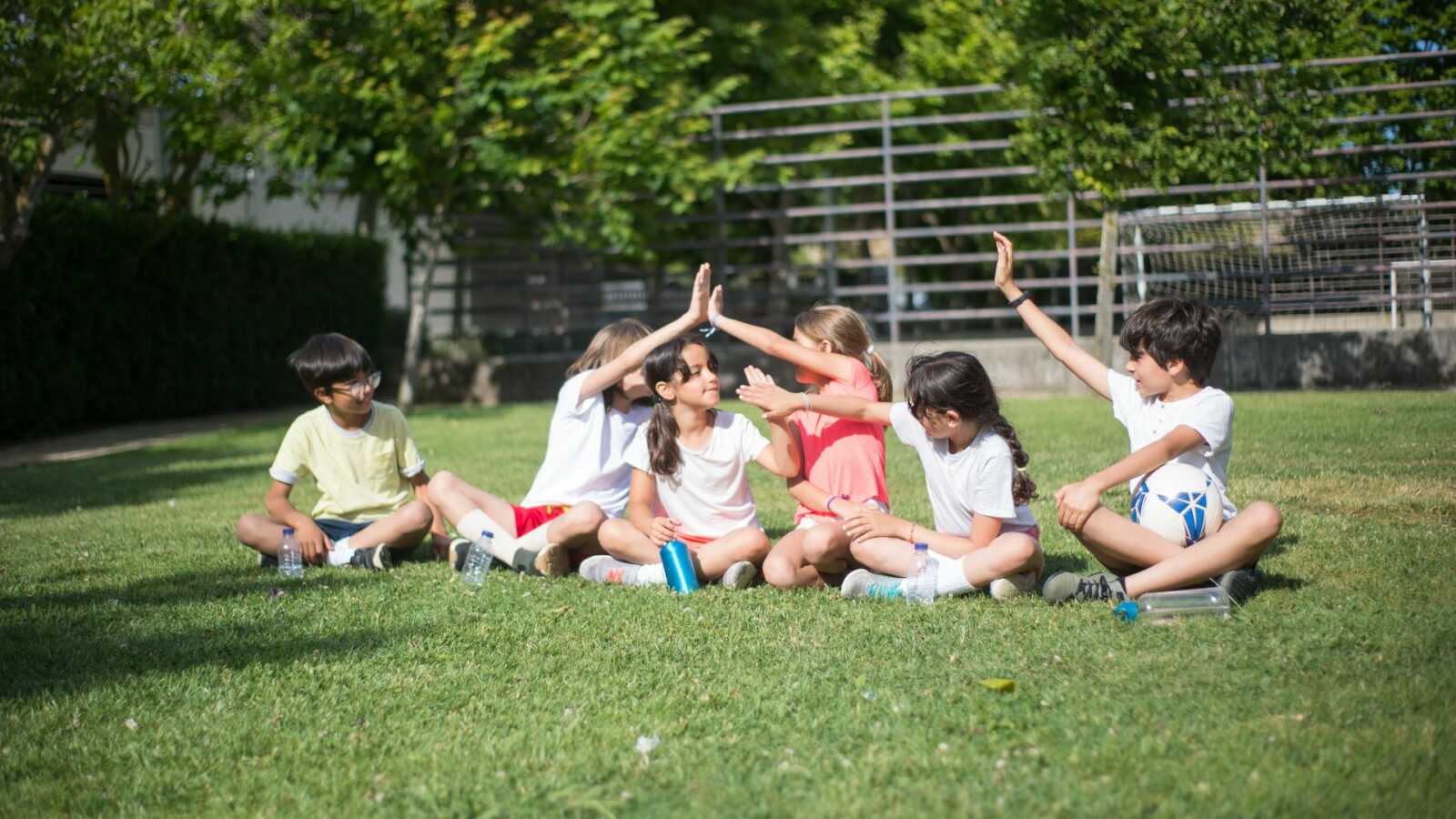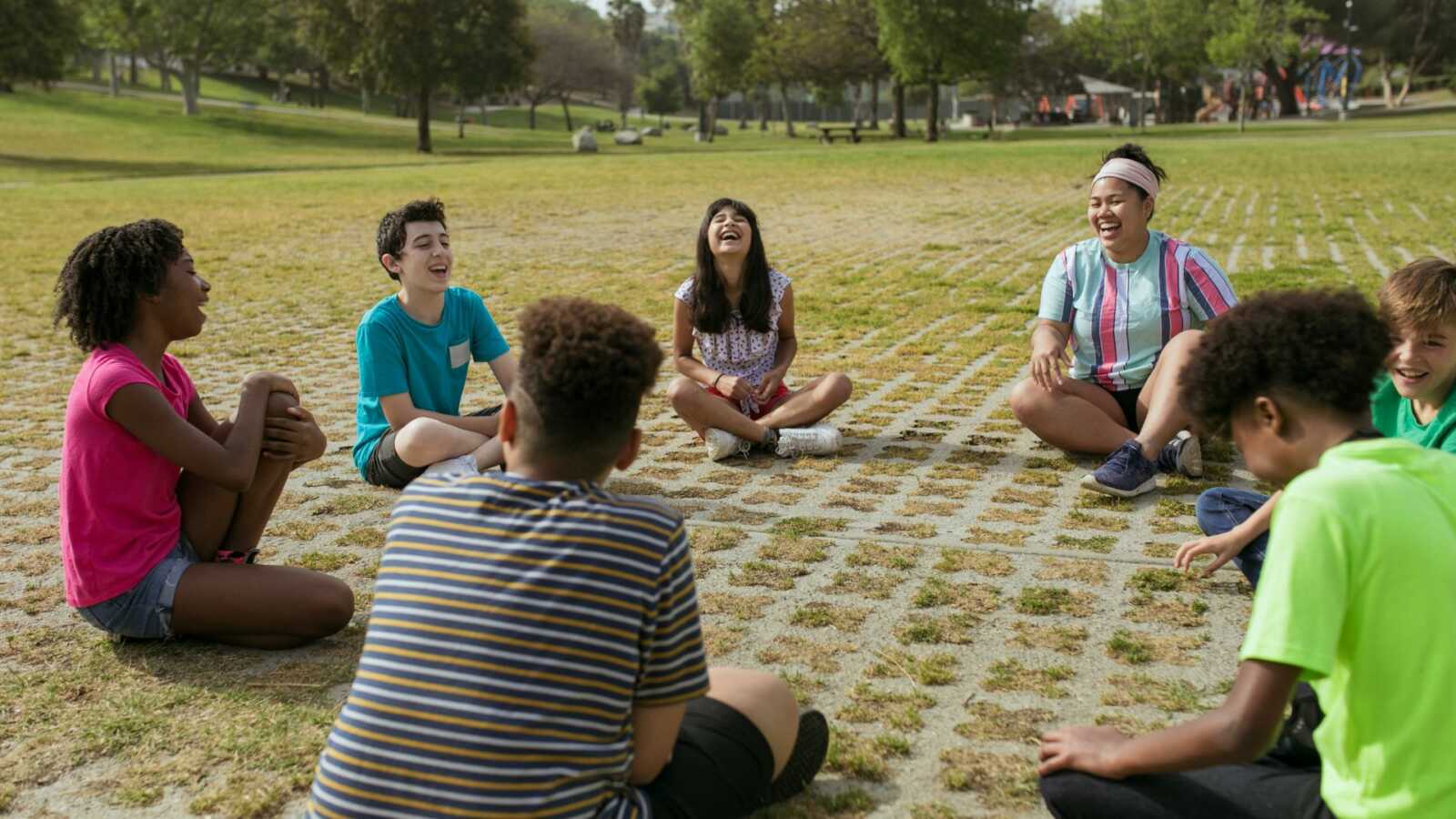More and more parents are choosing home education for their children and one of the biggest concerns is homeschool socialization. Homeschooled children may not get the same socialization found in traditional schooling, but it doesn’t mean they can’t learn crucial social skills. Discover excellent tips on how to socialize homeschoolers that get their kids involved with peers.
The Homeschool Socialization Myth
Since homeschooled children are not in a traditional school setting with other kids, some believe they miss out on social interaction. They think they don’t develop important social skills. However, homeschoolers have ample opportunity for socialization through various means.
Children learn how to navigate social interactions that are more akin to how they socialize in adulthood. They learn how to interact with people of all ages, backgrounds, and cultures. They often have more opportunities since they are not limited to a classroom setting.
1. Join a Local Homeschool Group
Most communities have local groups of fellow homeschool families. These groups typically have regular meetups, outings, and social events to attend. They’re a great way to meet other homeschooling families and build a sense of community. Local groups are usually run by volunteers, so don’t be afraid to offer your help.
Some groups also offer homeschool co-op classes where parents take turns teaching a subject. This is another great way for your child to socialize and learn new things at the same time. It’s a wonderful community engagement that’s beneficial to parents and kids.
Another benefit of joining a homeschool group is most will coordinate field trips. Field trips can provide hands-on learning experiences that go beyond the classroom. It’s an opportunity for kids to learn about new places, gain new experiences, and socialize with others. Some popular field trips include visiting museums, going to the zoo, and attending live performances.
Aside from the socialization opportunities a local group provides, it’s also an opportunity for homeschool parents to connect. Outside of the group, this can prove beneficial in getting your homeschooled child into more social situations.
2. Get Involved in Extracurricular Activities
Extracurricular activities such as sports teams, music lessons, drama clubs, and other groups are great ways to get your child involved. By participating in these activities, your child has the opportunity to meet and interact with other kids who share their interests.
Depending on your location, homeschooled children can participate in school-related extracurriculars even if they aren’t enrolled in public school. You can also check with local community centers or parks and recreation departments for programs for your child.
Encourage your child to take an active role in these activities. They can help plan events, take on leadership roles, and collaborate with others to achieve common goals. In a safe and supportive environment, they will gain valuable social skills and build strong relationships with their peers, while also fostering personal growth and development.

3. Participate in Homeschool Programs
An excellent way to supplement your child’s home education is with a program from a local facility. Museums, libraries, zoos, nature centers, and other facilities organize programs designed to offer fun, engaging, and educational activities for homeschooled students. In addition to the learning benefits, kids are also working alongside peers.
To find out about programs in your area, reach out to local facilities or check with your homeschool support group. Not only will attending these programs offer your child a chance to socialize, but it can also help enhance their education. They get access to experiences that may not be possible to provide at home.
It’s important to note that not all programs may be a good fit for your child. It’s essential to consider their individual needs and interests before enrolling them in any program. That way, they get the maximum benefit from their experience and can connect with kids that have like-minded interests.
4. Volunteer in the Community
Volunteering is a wonderful experience for children and offers a different method of socialization as it also engages their helpful spirit. Consider searching for volunteer opportunities at a local food bank, soup kitchen, animal shelter, or community garden. This not only allows your child to interact with a diverse group of people, but it also helps to instill important values like compassion, kindness, and civic responsibility.
When you volunteer as a family, your child also gets the opportunity to work alongside you, building strong bonds and learning life skills. Volunteering also provides an opportunity to explore various interests and hobbies that they might not get the chance to do otherwise.
As a homeschooler, volunteering in the community can also be a way to showcase your child’s educational experiences and how they can contribute positively to society. Encourage your child to take ownership of their volunteering experience by choosing the organization or cause that they are passionate about.
5. Use Technology to Connect
Don’t discount the benefits of engaging socially online. Even children that attend traditional school will connect with peers online. Guide your child into finding positive and safe areas to connect with like-minded kids by searching for online homeschool groups. With the right tools and precautions in place, your child can build meaningful relationships with other homeschoolers from all around the world.
Research virtual field trips, book clubs, webinars, or other educational events for kids to find something that interests your child. Help them practice effective communication and collaboration skills, which are valuable for socializing both in person and online. By guiding them to connect socially online, you’re showing them how they can be safe. This is hugely important for kids growing up in the digital age.
With these tips on how to socialize homeschoolers, you have many ways to ensure your kid builds strong relationships and social skills. Try out different methods to see which works best for your family.
This article was written exclusively for Love What Matters by Kate Fann. Be sure to subscribe to our free email newsletter for our best stories.
Read more stories like this:
Do you know someone who could benefit from reading this? SHARE this story on social media with family and friends.


